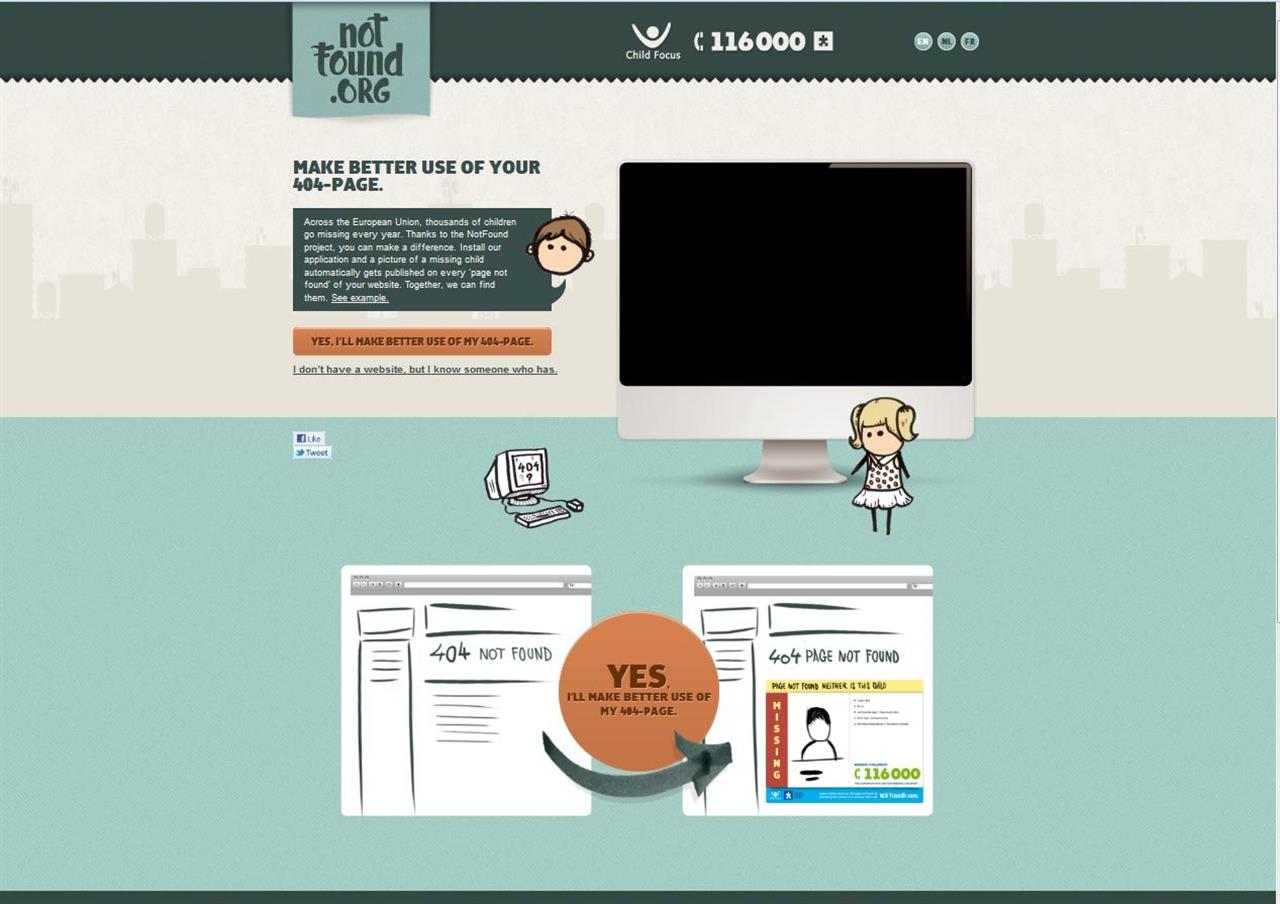NotFound.org a new project to find missing children in Europe
It’s called NotFound.org and aims at turning the web’s 404 not found pages into a platform dedicated to showcasing pictures of Europe’s missing children
di Staff

Publishing a photo of a missing child is the most effective way to find him back. For a long time in the US, hundreds of pictures have been published on milk cartons, so that every family could check them out in the morning while sitting down for breakfast but today in Europe a new project aims at reaching a wider audience. It’s called NotFound.org and aims at dedicating the web’s 404 pages, to showcasing the picture of missing people in Europe.
Launched by Belgian charity Child Focus in collaboration with Missing Children Europe, NotFound.org encourages websites owners to change the code of a non-existent page on their domain, so that when a visitor tries to access it, the page will display a picture and information on a current missing person, instead of the usual 404 error.
The project is the brainchild of Gary Smith, an IT entrepreneur who conceived this project as the exact reason why internet was designed for: “It costs nothing for hosting firms or ISPs to add the NotFound code to their pages and the idea should be extended to offer space for other charities and not-for-profit organisations.”
Since its launch last week, about a thousand websites have subscribed to the project. Across the EU thousands of children go missing every year. The term “missing children” refers to different types of disappearances, including parental abductions, runaways, the disappearance of unaccompanied migrant minors, criminal abductions and lost, injured or otherwise missing children. Just in the UK there are 140 thousand cases of missing children every year, while in Belgium an average of 4 new cases a day.
17 centesimi al giorno sono troppi?
Poco più di un euro a settimana, un caffè al bar o forse meno. 60 euro l’anno per tutti i contenuti di VITA, gli articoli online senza pubblicità, i magazine, le newsletter, i podcast, le infografiche e i libri digitali. Ma soprattutto per aiutarci a raccontare il sociale con sempre maggiore forza e incisività.
